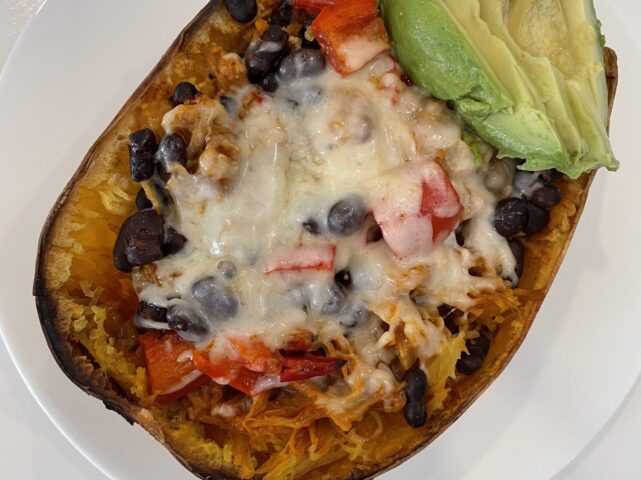Preparing Your Child for Sleepaway Camp: A Guide for Families Navigating Eating Disorder Recovery
By Paige Mandel, MS RD, CDN
Growing up going away to camp for 8 consecutive summers, and continuing on as a counselor for another 4 summers, I can firsthand speak to all of the perspectives of how it feels to be away at your summer home. Amidst all of the fun and everlasting friendships, it is important to remember to nourish and consistently re-nourish our bodies after a long day of activities in the sun.
The timing of meals at camp becomes pretty much part of the daily routine, with most camps following a structured schedule of 3 meals, a mid-afternoon snack and an evening canteen, with a cycling daily or weekly menu. Yet, the mealtime experience itself, each meal, each day, can be way less structured and predictable. After a tough year for many kids, having been pulled from most of their social interactions, schools, sports, dance classes etc., it is more important than ever to be mindful of preparing your child or teen for this change of pace. To be back in a chaotic food environment, with more distraction (think dance party, cheers and chants), less structure, buffet style, and without the luxury of access to their at-home fridge and pantry at any time of day. Also, adding in eating amongst what could be upwards of hundreds of other campers and staff. This could be a tricky and overwhelming adjustment for any kid, but for children and teens in eating disorder recovery or struggling with their relationship with food it is recommended to take steps to best prepare them for success.
-
Connect with the Camp Director(s)
As a dietitian with the most special place in my heart for sleepaway camp, it has been so rewarding to see how understanding, accommodating, and sensitive many camp directors have been to eating disorders. In fact, many have voiced experience with previous campers in recovery or struggling with their relationship with food, and have made their own suggestions for success. Informing the staff prior to opening day, of what your child is going through, as well as any behaviors they may engage in, is so valuable for their supervision and support across the board. This allows for the staff to be mindful of triggers, and prepare accordingly, and for the parent and child to feel safe and supported. Often times, camp staff will have a confidentiality meeting with each bunk of counselors, to discuss any medical or behavioral situations their campers are coming in with, and how to best assess, supervise and report such situations. This way, your child’s eating behaviors or triggers will be known by their counselors and any necessary interventions along the way can be addressed.
-
Plan Meal Support/Exposures
Mealtime at camp can be a little chaotic, offering less time for mindfulness, and often times accompanied by music, dancing, cheering, and a whole lot of other kids and staff. While this is such a fun and exciting time, it could be really hard for kids who struggle with meal outside the house. After a year of limited social interaction, it is recommended to get your kids used to eating with other kids again, with distractions and other plates around them. It is important to work through what comes up in these situations, before getting to camp. This way, they’ve learned the tools to be present, and nourish themselves adequately in different environments. Planning meal support sessions, or exposures to a variety of foods could create a new sense of comfort, so when they get to camp, its nothing new, they’ve done this before, they’ve seen this before. The meal choices at camp may be categorized by your child in a certain way, it is important to explore this with your child and/or their team, to make peace with and neutralize all food as fuel. Also, snacking between meals is more limited when at camp, therefore eating enough at the main meals is going to be essential. If your child struggles with having adequate portions at their main meals, consider meal support to help them become more comfortable with having more on their plate, allowing them to eat to satisfying fullness, with no pressure to clean the plate.
-
Neutralize Canteen
The infamous canteen. At many camps this is a time, usually in the evenings, where campers get to choose from a variety of snacks, most typically ranging from chips, to candy, to ice cream. Depending on where your child or teen is in their recovery journey or how they have addressed their “fear foods”, this may be an overwhelming time. Sweet snacks such as Hershey bars or Chipwiches, salty snacks such as Goldfish or popcorn, may feel scary. A great way to lessen this fear, is by exposing your child to these choices a couple times a week at home. This could be a way to decrease the anxiety and pressure surrounding these foods, so that when they are with their friends they can approach the situation with more ease, as it’s not the first time they’re facing their fears. Working with your child to neutralize all foods will help support a positive relationship with it. Remembering, and reinforcing to your child, as Laura says in her Five Pillars of Positive Nutrition Philosophy, “food is just food and it doesn’t deserve value judgements. It all nourishes us one way or another. Change your language around food, and you’ll change your relationship with it, to one that’s far more positive”.
-
Request Blind Weights
If you are not already familiar with the term “blind weight”, it means being weighed while not revealing the number on the scale. This is a good way to monitor weight gain, maintenance, and loss without it subsequently affecting the individuals thoughts, feelings or behaviors around food associated with their body weight. Connecting with the camp doctor, health center or directors to put in a plan in place for your child to be blindly weighed could create a sense of comfort for the parent, child, and team as a way of monitoring while they’re away from home. In my experience, camp staff has been extremely accommodating with this, making it something that is unknown to the other campers, done subtly, to avoid bringing attention to your child’s treatment of which they may not have shared with their camp friends or may feel nervous about.
-
Make a Safety Plan
Last but not least, make a plan! Creating a safety plan or motivational contract will provide a clear cut plan to lay out the ground rules, and a way to put measures in place in the case that your child struggles to meet his or her needs. For example, if he/she loses x amount of weight, the recommendation is he/she to come home from camp where needs could be more adequately met and enforced. Another example of a contract statement, “this is what meals need to look like at camp so that I can stay there, if I am unable to do this and the weight drops, I need to come home”. With such measures in place, this can assure your child is medically stable and safe while away from home, keep your child accountable for themselves while away, and keep your mind as a parent or caretaker at ease.
We recommend consulting with a dietitian and treatment team to help guide your success plan, to assure medical stability, and provide meal support/exposure therapy for your child or teen. Sleepaway camp is an unforgettable experience of a lifetime, having a plan, and being well prepared could help your child to enjoy it to the fullest, in the safest way, enjoying a happy, healthy summer!








